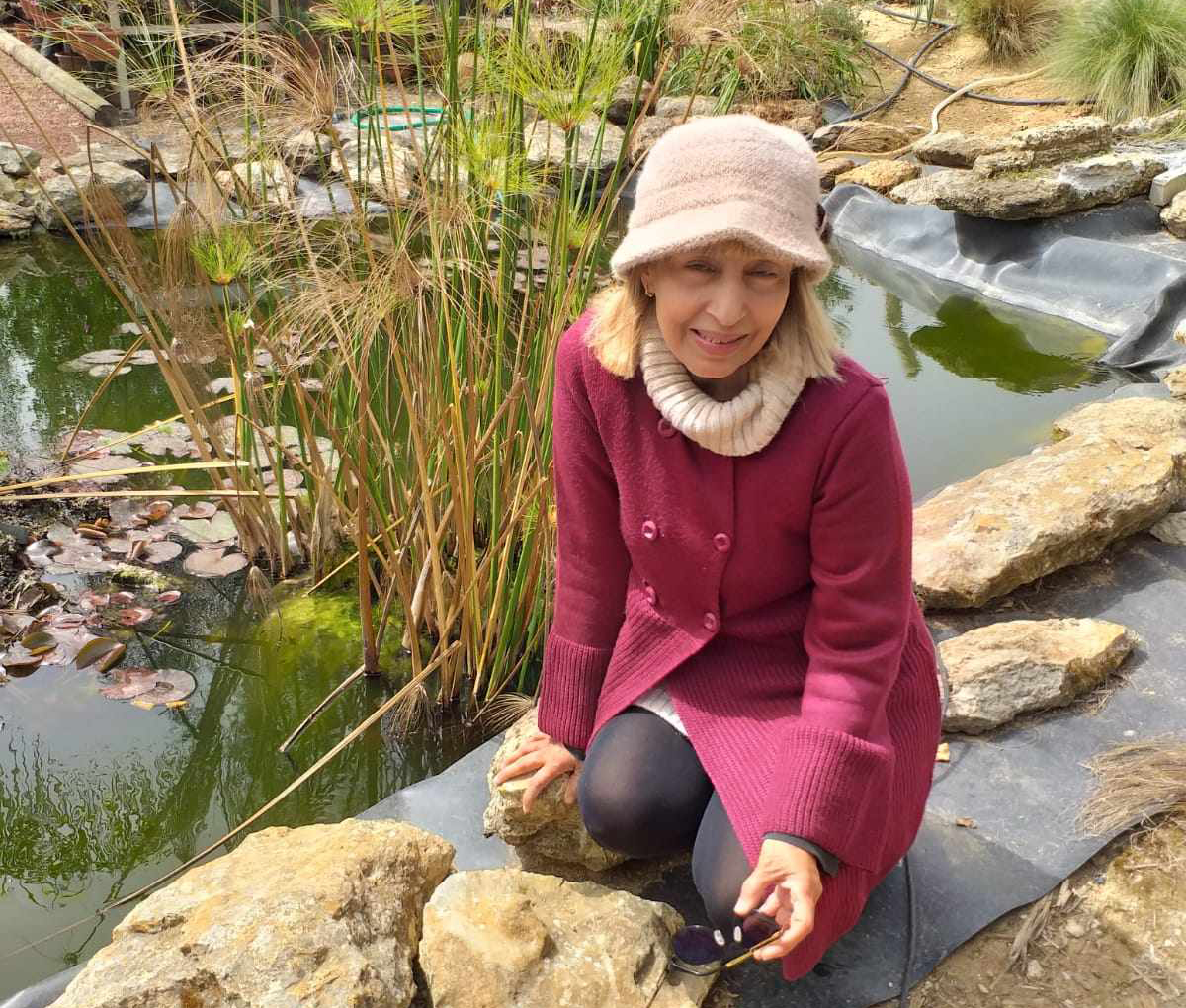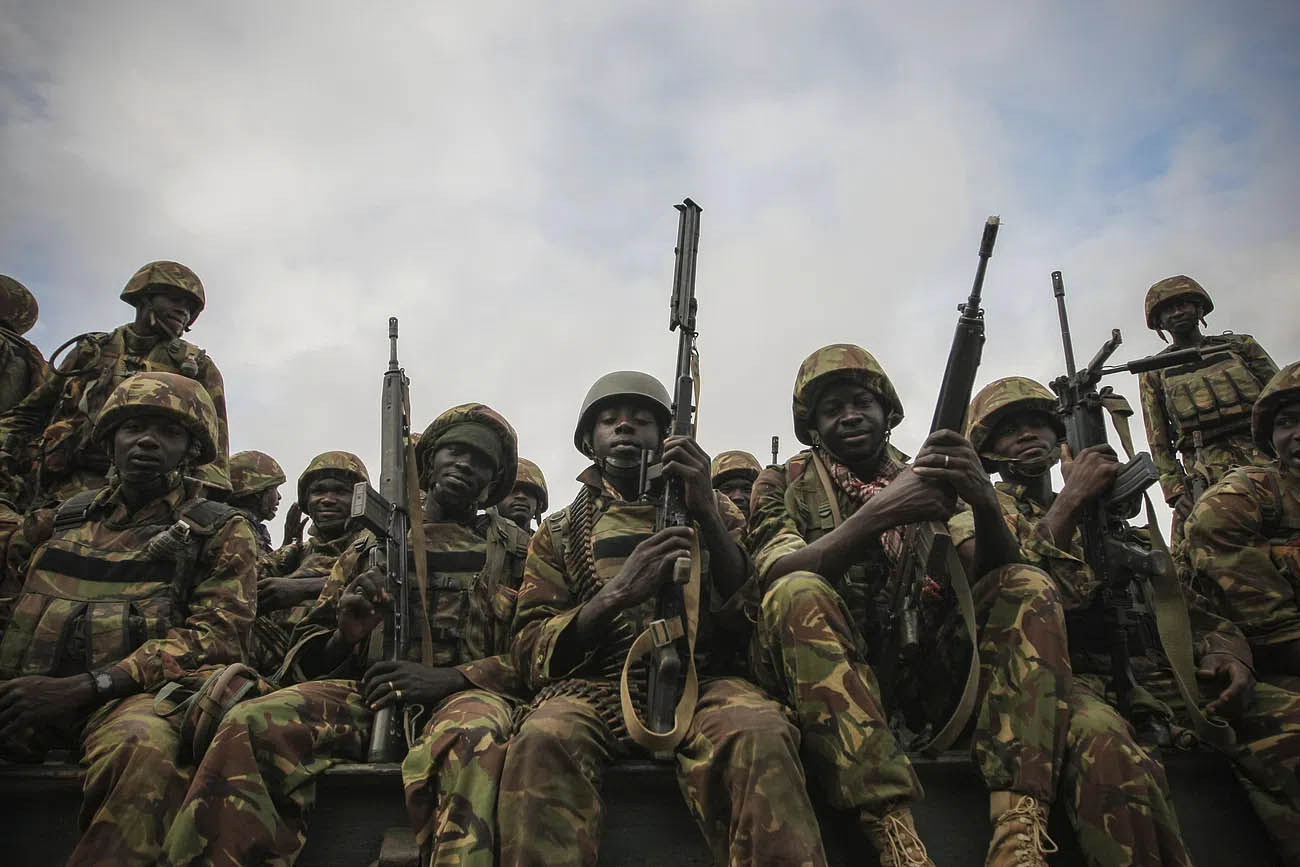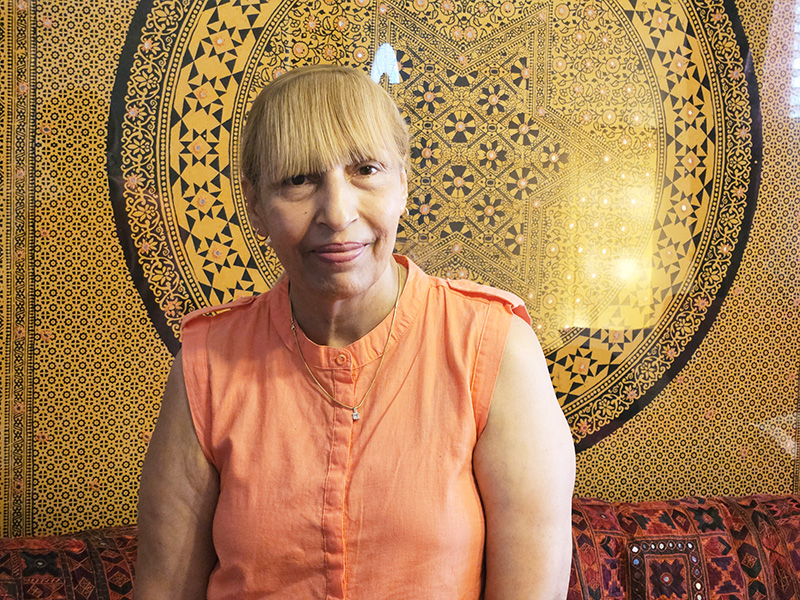Haunted by knowns and unknowns, one woman who has worked in multiple war zones says she was always driven by the compulsion to help
Two very different men with vaguely similar surnames haunt the living room of Sarah Dawoodi’s house in Avgorou. “Know only that which makes the unknown known,” wrote Rumi, the 13th-century Tajik poet. “There are known knowns. There are known unknowns… But there are also unknown unknowns,” said Donald Rumsfeld, one of the architects of the war in Iraq.
Rumi’s right there, a book of his poems on Sarah’s coffee table. Rumsfeld isn’t, but the books on her shelves include Disarming Iraq by Hans Blix – and Blix, like Sarah herself, worked for the UN, a decade-plus (in her case) as a procurement officer in assorted war zones.
Knowns and unknowns also haunt the little room – things which are out there and things that remain mysterious (at least to me). Her family background has gaps, by design. She’s currently working pro bono as an interpreter at the International Protection Administrative Court in Nicosia (she speaks seven languages), but prefers not to share too many details.
What about the war zones? Did she actually see people getting killed?
“Yes,” she replies softly, then shakes her head: “But I will not talk about it”.
She was in Bosnia in 1993 for a few months, “on deputation” from her job in the Pakistani civil service – then with the UN later on, several years in the former Yugoslavia (especially Kosovo) and a couple in Darfur, the war-torn region of western Sudan. Her story comes to a head, culminating in health problems – then veers north, to an unexpected happy ending in Avgorou.

“Before that, I was living but I was not alive,” says Sarah. “I was functioning, I was doing my duties, my moral responsibilities. But to live – to live as a human being…” She shakes her head again, grimly: “First time [was] in Cyprus”.
She gives a sense of having been through a lot – and a related wariness, a sense of knowing how it feels to be let down by others and have to rely on oneself. Her style is frank, unfiltered, naturally quirky; even quite ordinary statements tend to come with some eccentric tweak. “I have a cat,” she tells me. “His name is Cat Agapi Mou Dawoodi”. (Alas, CAMD doesn’t join us for the interview.) Earlier, speaking of her dad, she says he was “aggressive, like me” – then pauses:
“Not ‘aggressive’, wrong word… He had his independent personality. He was what I am, sovereign. He was sovereign in himself.”
Dad was a scholar, specialising in the study of ancient Oriental manuscripts; Sarah’s paternal ancestors hail from Aligarh in northern India, though her own complexion is fairer (her birth mother was Australian). “I am the daughter of an Indian immigrant to Pakistan,” she tells me – “who died as a very disappointed person, because he came for research, to work in the field of literature. But he couldn’t – because Pakistan disappointed him.”
His daughter’s relationship with her homeland is equally fraught. Aged 22, Sarah sat the civil service exam – and, to her great surprise, passed (indeed, she ranked among the top 10 candidates nationally). “My interview was very bad,” she sighs. “They asked me about some dams. I couldn’t reply… Then they asked me about human values – and I said to them: ‘There are no human values in Pakistan, and if I come to the civil service I would like to bring some change to that’. I came out, and I told my father, ‘I think I will fail, I said this and that’. He said, ‘Yes, you will fail’.” She shrugs: “I passed”.
Maybe they were just very impressed with her personality, I suggest.
“No, my personality has never been impressive,” she replies glumly. “I’m just five feet tall, short woman. Very spontaneous woman. I have never been impressive in my life.” Like I said, unfiltered.
Impressive or not, Sarah proved to be as good as her word, using her job as assistant collector in the customs service – the first-ever woman in that post in Lahore – to bring change to what was then (and probably remains) a very corrupt system. “I was a person who was not bothered about money,” she explains. “I was living in my father’s home, I didn’t need anything… So I just did everything according to the book. I was the most unpopular person among them!”
Did she find herself in danger?
“Yes. I had many threatening calls. I was chased [i.e. followed] all the time… I couldn’t go to the market.”

She was angry at the time, muses Sarah (she’s mellowed now, part of the Avgorou-enabled happy ending). Witnessing corruption every day made her very “rough and tough,” she recalls – but in fact it was bound to happen, because of the kind of person she was. Sarah Dawoodi always had a very moral (not to say moralistic) view of the world, naturally seeing it as a place where good must be rewarded, and evil punished.
For herself, “I always wanted to help people”; even in childhood, nothing made her happier than using her pocket money to give to someone poorer than herself. The flip side, however, was that naughty people must be taken down a peg – and it also made her happy to do “something correct” during her time in the ombudsperson’s office (she moved there after the customs service), nailing some corrupt individual for evading taxes or hiding their assets.
I have a photo of Hercule Poirot in my bedroom, says Sarah suddenly – this is later, while discussing her hobbies which include watching old detective shows – and, noting the polite disbelief in my expression, rushes off to get it.
There it is indeed, a framed photo of David Suchet as the dapper Belgian sleuth. (Her other favourite is the considerably less dapper Columbo.) It’s a bit confusing – what kind of person has a photo of Poirot in their bedroom? – but the point, she explains, is that old detective shows speak to her native idealism. The intervention of Poirot or Columbo is the only way “that justice prevails, and goodness wins”.
This, I assume – the compulsion to help, and do good – was a big part of why she thrived in war zones, at least for a while. Bosnia in 1993 was the game-changer: she went on deputation to the UN mission “and it was war there… It was so much misery. And it was mass graves, and there were so many strange incidents”. People lived in limbo, dodging fire; death came suddenly, a bolt from the blue. Sarah pauses: “I liked it, actually”.
Didn’t it make her sad?
“I felt very sad – but it [also] gave me happiness. Whatever I can do, I do. Sudan made me sad,” she adds, meaning Darfur in the late 2000s. “Sudan made me very sad. Maybe by that time I was realising my limits. In Bosnia I was young, I was energetic, and I was thinking ‘Whatever I can do, I will do’. And I had hope in humanity, and I had hope in UN bureaucracy…”
In Kosovo, at the turn of the millennium – still young and hopeful – “I was a different person. I used to get up in the night, take two or three KFOR people” (KFOR was the Nato-led Kosovo Force) and go into town just to “see what’s happening in the area, let’s do something”.
In Sudan, there was no such initiative; she became depressed, and developed a cyst in her throat. “There were times [in Sudan] when I lost my hope in humanity. And I felt that the words ‘human rights’ are fake words, and we abuse them.”
They were living in containers in the desert heat, “eight people in one container, ladies and men”, plagued by cockroaches. (They fly in Sudan, she says grimly, “and they’re very fat.”) She recalls a Kenyan colleague, Jeremiah, sleeping on the floor with nothing but a cloth around his midriff, “he took some whisky so that he will sleep, totally calm, with the alarm next to him on the floor – and I used to see the cockroaches going on him, crossing…” Sarah both giggles and shudders at the memory. “He didn’t care. He told me many times, ‘They don’t do anything’.”
He was right, of course – or at least, there were bigger problems. By that time, the war (and genocide) in Darfur was five years old; the atmosphere was bleak, and very heavy. She recalls kids in slate-coloured shorts, happy when their school finally opened – she practised her Arabic with them, and gave them chocolates which she bought at the duty-free store – then “one night we heard shots, and blasts, and they said to me: ‘There is no school, nothing. People have been killed in that area’.”
Worst of all, for a woman who seems passionate about women’s rights – she’s proud of her own landmark post in the Pakistani civil service, and talks of the “strong” local women she’s befriended in Avgorou – was the hopeless plight of the Sudanese women and girls.
Kosovo, too, had been grim: she recalls a girl she met who’d been raped by soldiers at 14 – but the enemy there was the war, not the culture itself. That girl could be helped, and she was (she’s now a civil engineer in her 30s). Sudan was a whole other story: dirt-poor women, their clothes torn and patched under the burqa “and most of the time they were hungry”, burdened with seven or nine kids because family planning is un-Islamic. “Young, young women who had become old.”
Sarah pauses, looking at me slyly: “You didn’t ask me about racism here,” she points out.
It’s true, I didn’t. Does she have something to say?
“No,” she admits. “Because I didn’t face it.”
The change in Sarah Dawoodi’s life came very suddenly. One night in 2010 – “it was two or three o’clock in the morning” – she was at her computer in the Sudan office, trying not to think of the bugs crawling over Jeremiah, bothered by her cyst and the doctor’s warning that it might come back, and decided to at least find a place “where I can die peacefully”.
Sarah searched for “the least criminal place in Europe… and the Republic of Cyprus cropped up first!” she explains with a straight face. She found Avgorou – “the whole project I did in one night” – and arrived soon after, as a permanent resident (though not a citizen, which is why she works pro bono). “I think I had a very comfortable landing in the village,” she observes – though it goes without saying that “finances matter a lot. If I had landed here as a cleaner, I think I’d have faced some racism”.
So here we are, the happy ending – though of course not an ‘ending’ per se – of a moral, proactive woman who lost her initial idealism but found a measure of happiness. These days she gets up early, before 4am, for an hour of yoga, then drives to the court in Nicosia, then devotes herself to books – currently Becoming by Michelle Obama – and the little garden behind the house.
She wanted “to beat life,” she says of her younger self – meaning fight back, create a better life. And now? I drive by Achna Dam on the way out of the village, a beautiful spot with everything from cypress to palm trees around the tranquil reservoir. This is where she comes every evening, says Sarah, to walk and gaze and ruminate.
What – I wonder – does she think about on those walks? The devastated girls in Darfur? Her own youth in Pakistan? The state of the world? (She’s worried that a world war is imminent; Ukraine is basically a more momentous version of Kosovo.) Do regrets seep in, now and then? “I never had a child,” muses Sarah. “I never had a family life. And I never will have.” Does she wonder what that might’ve been like? A lifetime of knowns, and unknowns.







Click here to change your cookie preferences